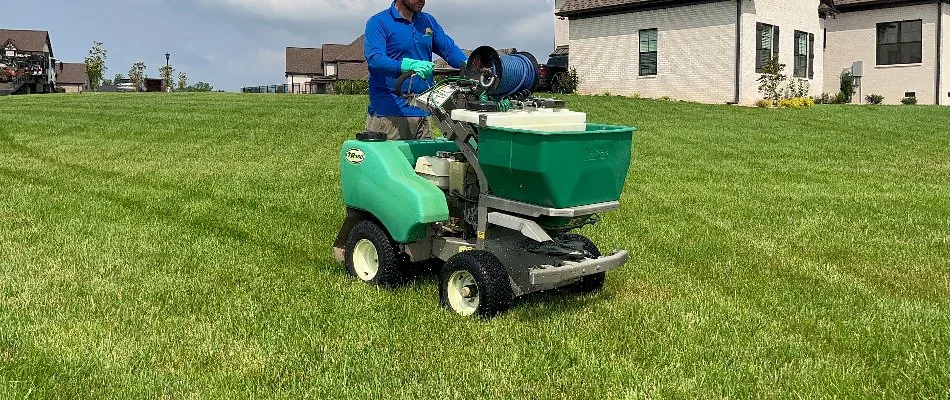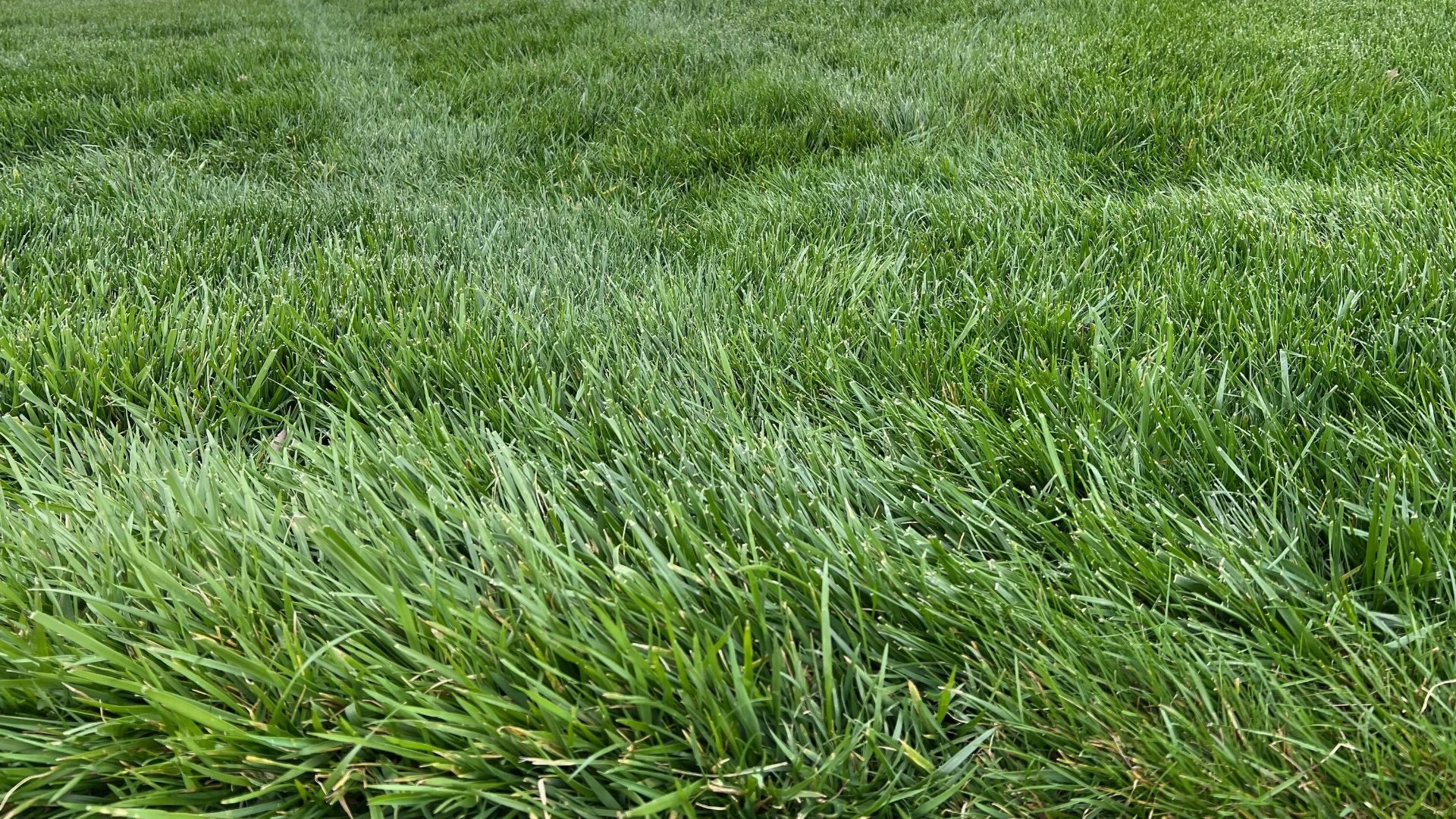Fertilization is an essential component of lawn care, but what's the ideal schedule for bermudagrass lawns in Tennessee? Following a treatment schedule will ensure your grass receives a consistent supply of the nutrients it needs, so you'll want to fertilize it twice in the spring and summer and once in the fall. The spring applications will help it emerge from winter dormancy and start the new growing season on the right foot, while the summer treatments will keep it healthy and strong enough to endure this taxing time. Finally, the fall fertilizer treatment will help it recover and set it up to transition into winter in great shape.
Fertilize Your Bermudagrass Lawn Twice in the Spring
Two fertilization treatments are necessary for your bermudagrass lawn in the spring. During the winter, it goes dormant to preserve its energy and resources to survive, so as the weather gets warmer, it'll likely have used up most, if not all, of its stored nutrients. The first fertilizer application should occur in late winter/early spring, between mid-January and mid-March, to help it emerge from dormancy and stimulate healthy, green grass growth.
You'll want to fertilize your lawn again in early to mid-spring, between mid-March and April. This treatment will replenish the nutrients it used since the previous application and build up its strength in preparation for the hot summer months ahead. That way, it has an easier time enduring the stress that comes with this season.
Your Grass Needs Two Fertilizer Treatments in the Summer

Summer is taxing on your bermudagrass lawn, even though it's a warm-season type that thrives when temperatures are warmer. After all, the hot weather can stress it out, so you'll want to apply two fertilizer treatments during this season. The first application should occur in early to mid-summer, between mid-June and August, to provide nourishment that'll help keep it resilient to stress and stay green. Meanwhile, you'll want to fertilize your turf again in mid to late summer, between August and mid-September, to carry it through the remainder of the season and ensure it stays healthy.
Fertilize Your Bermudagrass Lawn Once in the Fall
Once summer transitions into fall, you'll want to fertilize your bermudagrass lawn one last time. You'll want to apply this treatment in early to mid-fall, between mid-September and November, to deliver nutrients that help it recover from summer-related damage. A fall fertilizer treatment will also restore its lush, vibrant state and promote root development, which will gear it up to endure winter dormancy. When it enters winter in tip-top condition, it has a better chance of surviving and bouncing back quicker come springtime.
Call us today to sign up for our lawn fertilization service!
At Performance Lawns Inc., we offer a lawn fertilization service to give your turf all the nutrients it needs to thrive throughout the growing season! We have a program for fescue grass and another for bermudagrass to fertilize yours based on when it needs it the most. With bermudagrass lawns, we'll apply our treatments twice in the spring and summer and once in the fall, as this schedule is ideal for keeping it at its healthiest and most beautiful. Not only that, our team will also utilize pre- and post-emergent weed control treatments to ensure it doesn't have any competition!
We offer our professional lawn fertilization service to residential and commercial properties in Gallatin, TN, and throughout the nearby areas, such as Hendersonville and Lebanon. Call us today at (615) 708-5549 to sign up for this service!



Comments (0)
Thanks for your comment!
Thanks for your feedback! Your comments have been successfully submitted! Please note, all comments require admin approval prior to display.
Error submitting comment!
There is a problem with your comment, please see below and try again.